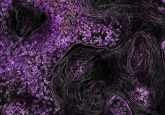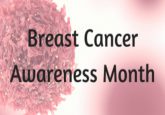Novel drug promotes tumor remission in 50% of HER-2-negative breast cancer patients
The first set of findings from a Phase I clinical trial of nintedanib in HER-2-negative breast cancer patients have recently been published in the British Journal of Cancer.
The results of the trial, which was conducted by the CNIO’s (Spanish National Cancer Research Centre) Breast Cancer Clinical Research Unit, demonstrated that treatment with nintedanib (Boehringer Ingelheim, Germany) in combination with paclitaxel resulted in a total remission of tumors in 50% of patients. With HER-2-negative breast cancer being the most common form of the disease, the results could have profound consequences for the future of breast cancer treatment.
The trial was conducted in ten early-stage HER-2-negative breast cancer patients with tumors larger than 2 cm in diameter. Each patient received nintedanib alongside paclitaxel in a dose-escalation trial. From the data, the drug was not only found to be safe but also demonstrated a 50% rate of recovery. This confers a doubled rate of remissions when compared with standard treatment with paclitaxel alone. The findings have also demonstrated that the drug can be delivered in combination with paclitaxel at a full-dose intensity.
Further to this trial, the CNIO’s Breast Cancer Clinical Research Unit has published results in Molecular Oncology detailing the second Phase I clinical trial of the agent termed dovitinib (Novartis, Switzerland) in metastatic patients with various primary tumors, including those of the breast, colon and lung. The results suggest that presence of the RET proto-oncogene variant G2071A confers sensitivity to the drug and could serve as a biomarker in personalized breast cancer treatment.
Dovitinib and nintedanib fall within the same family of drugs and work by inhibiting angiogenesis by blocking VEGF receptors and PDGF receptors. As a result, the drugs restrict blood flow to the tumor, consequently limiting tumor growth. This idea of ‘suffocation’ is a concept that has been researched extensively in the field on oncology.
Previous small-molecule antiangiogenics have compromised chemotherapy dose intensity in breast cancer. However the innovative actions of nintedanib mean that it also acts upon FGF receptors, which commonly work in an abnormal manner in HER-2-negative breast cancer patients.
Miguel Ángel Quintela, head of the Breast Cancer Clinical Research Unit, commented: “Nintedanib is an improved antiangiogenic drug compared to previous angiogenesis inhibitors, given that it prevents angiogenesis in a more efficient way and with lower toxicity than its predecessors”.
Following these findings, Phase II clinical trials have been initiated and will incorporate a large number of patients. These results, including biomarker studies that will facilitate advances in personalized medicine, will be released by early 2015.
As a novel, selective agent, nintedanib shows promise for the next stage of trials, which will further determine the drug’s efficacy. Its novel mechanism of action can hope to aid antiangiogenic developments in the breast cancer field, and increase tumor remission rates in HER-2-negative breast cancer patients in the future.
The study was sponsored by the CNIO.
Sources: Bratos R, Colomer R, Escudero MJ et al. Phase I clinical trial of nintedanib plus paclitaxel in early HER-2-negative breast cancer (CNIO-BR-01-2010/GEICAM-2010-10 study). British Journal of Cancer. 111 (6): 1060. DOI: 10.1038/bjc.2014.397 (2014); Centro Nacional de Investigaciones Oncologicas press release




